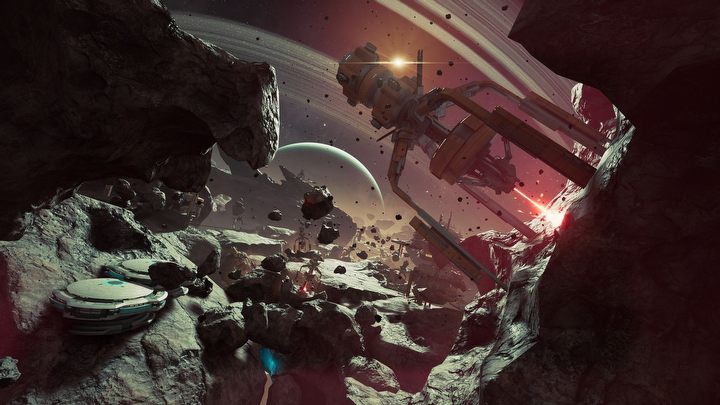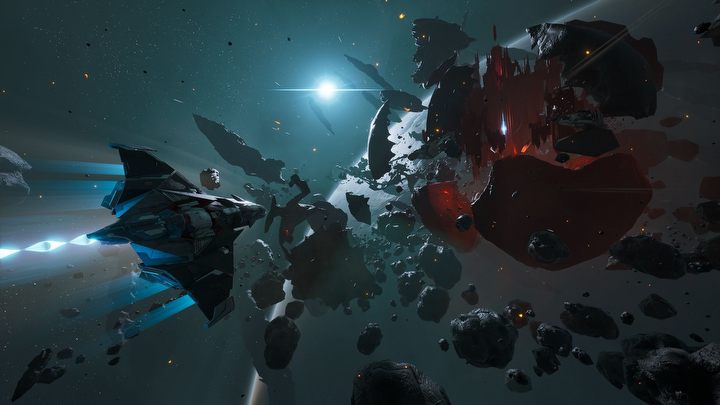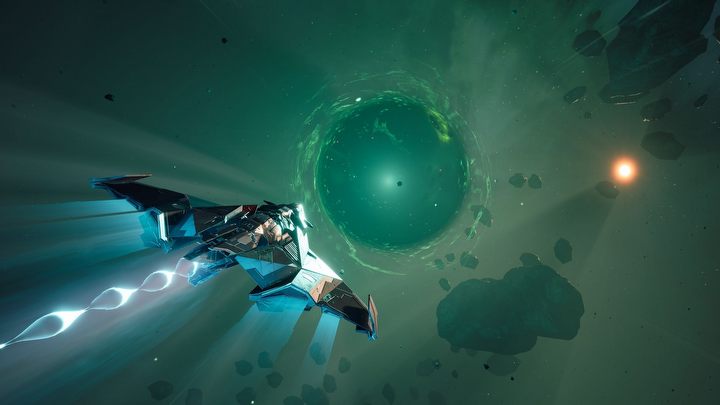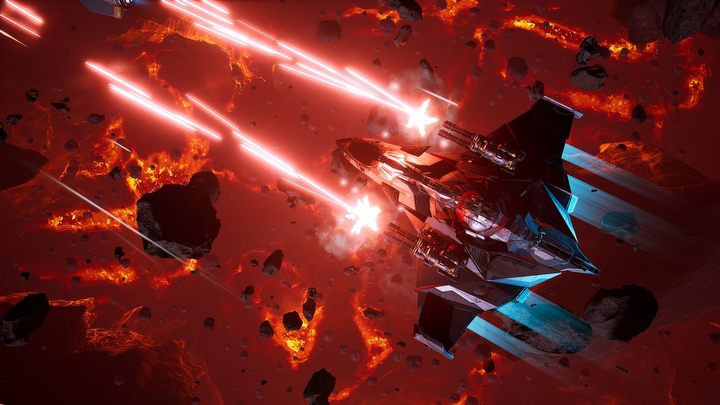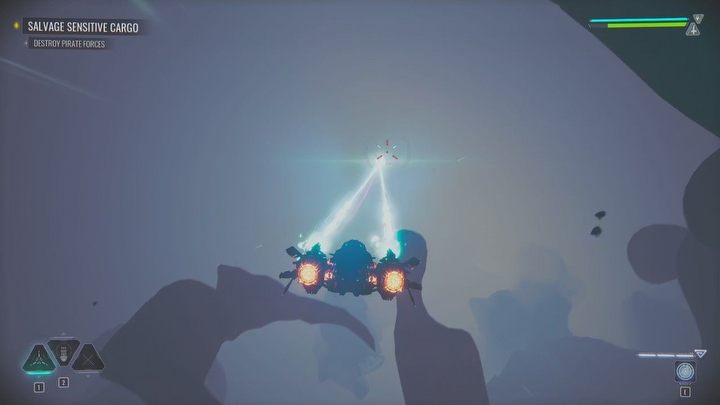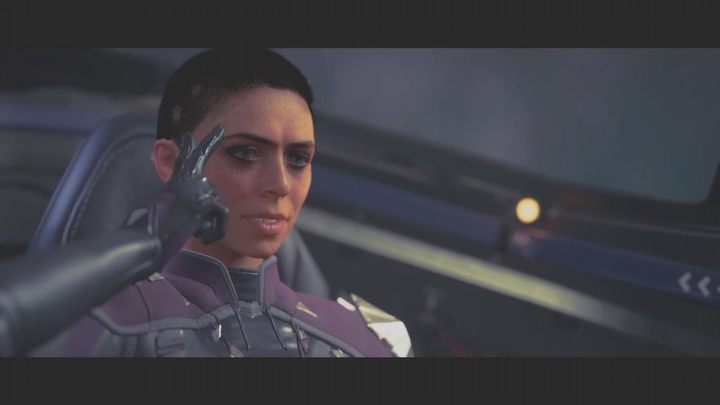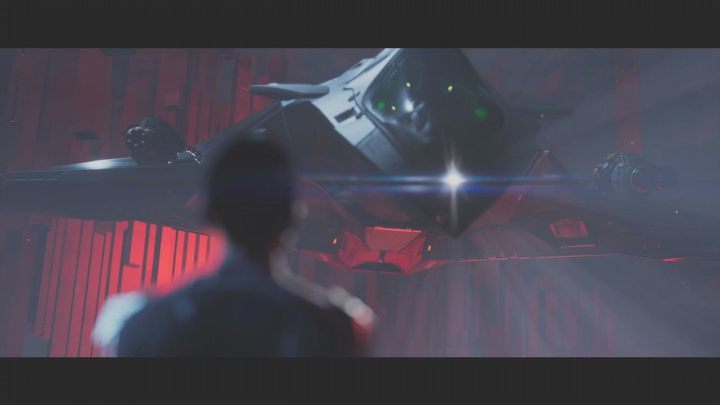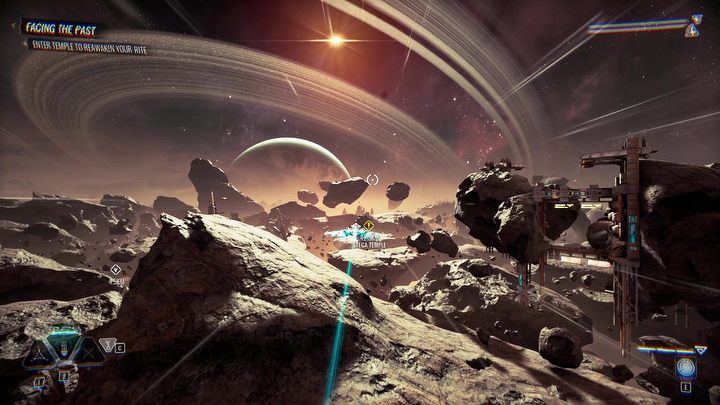Chorus Review: Satisfying Combat Distracts From A Lackluster Protagonist
Chorus misses out on the opportunity to let the player decide who the protagonist is, choosing instead to force a dramatic end-of-the-world scenario on the player that cheapens the ability to explore and take on side-missions. Read our review.
The review is based on the PC version. It's also relevant to PS4, XONE, PS5, XSX version(s).
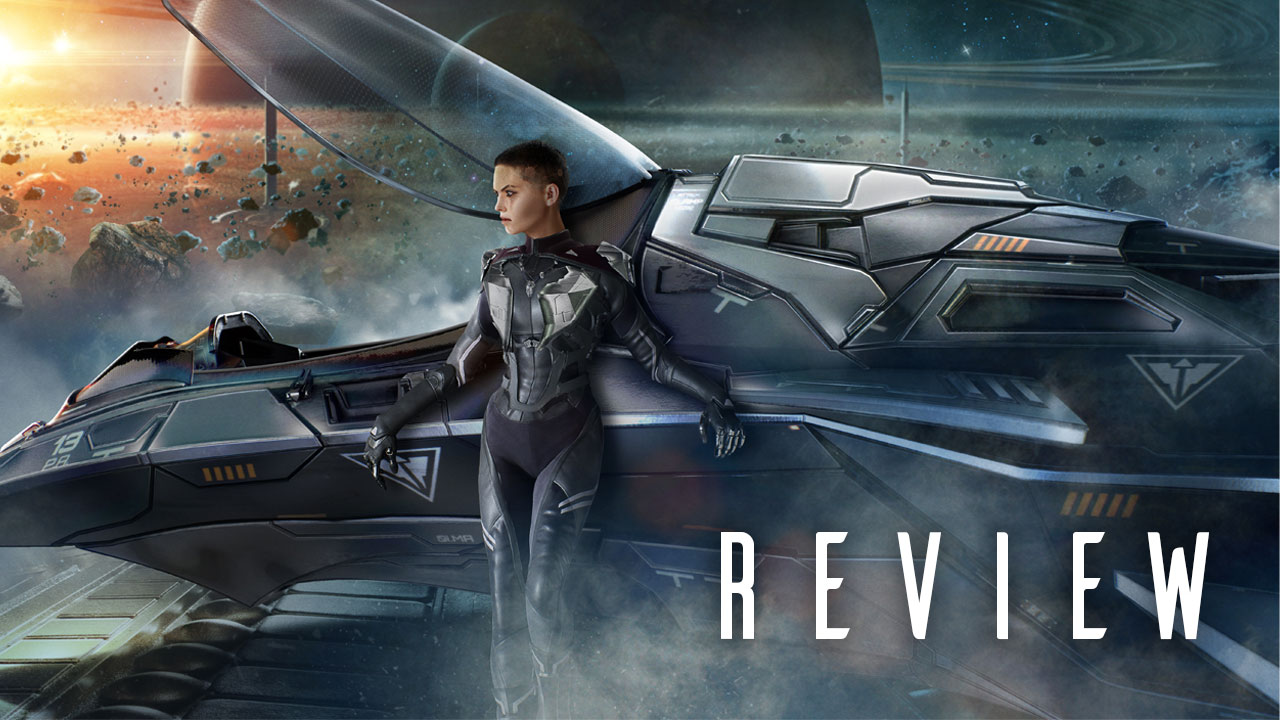
Chorus, from developers Deep Silver and Fishlabs, brings the player into a fantastical science fiction world in another galaxy. Take on the role of an elite space pilot in a grand story of redemption and danger through a series of side missions and space battles as the evil space cult, the Circle, tries to conquer the galaxy. The player can utilize unique skills and powers to give themselves an edge in combat and exploration.
- Satisfying and engaging action;
- Incredible visual environments;
- Smooth controls.
- Story dampens player choice;
- Cut-scene graphics are a letdown.
Players can spend any extra time exploring large expanses of space and upgrading their ship’s weapon systems and armor. The desperate fight against the Circle takes the forefront of the game’s story, but players still have the opportunity to explore various parts of the galaxy in their own way. As the game progresses new explorable areas will be unlocked, so Chorus is not a fully open-world game; it features more of a streams and ponds approach, where players can follow the story to reach new, but unconnected, openly explorable areas.
The title Chorus comes from the Circle’s goal of uniting the galaxy in harmony and eliminating any who oppose them. This constant threat looms over everyone and lends a grim tone to the overall atmosphere. But there is always the hope that someone can step up and defeat the Circle.
Fighting the Circle
This is the driving force behind the game. The player takes on the role of Nara, a once-powerful member of a galactic cult called the Circle. After destroying a planet with her power, Nara does her best to escape to the outer reaches of the galaxy, trying to put her violent past behind her. But everyone knows the Circle will eventually reach even here.
Nara deals with some incredibly heavy trauma from her crimes, but ultimately has to face her past when the Circle arrives in her new home. This is a great driver to push a player to complete story missions, yet it can be somewhat of a detriment when the game offers rather inconsequential side missions and places to explore on the map. With so much pressure on Nara to take responsibility for her past, feel guilt, and fight for revenge, there isn’t much space left for the player to insert themselves into the world, or character.
In other games with explorable regions and plentiful sidequests, the player typically can create their own character, or the character is at least somewhat of a blank slate. This allows us to decide how we want to react to and impact the world around – to an extent. Even Breath of the Wild’s Link eventually has to fight Ganon. But when so much of the character’s personality and outlook are out of the player’s control, it can make the opportunity to pick and choose side missions feel less like a meaningful choice and more like a game mechanic.
Satisfying Space Combat
Now all of that might sound tough to get around, but thankfully Chorus has some excellent gameplay that really takes the forefront. The best part of the story is that it constantly launches the player into spaceship combat, which is the highlight of the whole experience. The ships handle wonderfully, and the enemies are satisfying to fight, whether that means confidently blasting the weak enemies to bits or using every technique to take on a more challenging foe.
The ship has three types of weapons that can be cycled between. Gatling guns deal strong damage to ships, lasers that take down shields, and missiles are great against slow-moving, armored ships. Combat is very fast and any moment spent idling will lead to heavy damage, so the battles are all about dashing around to avoid enemy fire while stopping briefly to switch weapons or line up the next target.
It’s also worth mentioning that the controls are very smooth and forgiving. After playing other flight simulation games, Chorus makes it easier than many to dash through narrow spaces and turn on a dime. This also helps a lot in combat, making quick turn tactics very satisfying. It’s actually not hard to do the classic move like “hit the breaks to let them fly by you then shoot them down” that is common in cinema. Though it should be noted that this review is based on mouse and keyboard controls.
Without giving too much of the surprises away, Nara also quickly reconnects with her powerful cult ship that houses a powerful AI that she has bonded with. This ship gives some significant upgrades to combat including space-drifting that makes turning, also while shooting, a breeze, as well as allows Nara to unlock her latent powers. The first power Nara unlocks is the ability to teleport herself to a vantage position, be that through a barrier or directly behind an enemy ship. These upgrades help make weaker ships more of an annoyance than a real issue and allow Nara to take on more challenging foes.
Chorus is a very fun and satisfying space combat adventure. The controls are smooth and forgiving while the combat is fast-paced and engaging. Where Chorus unfortunately falters is an over-centralization on the dark and dramatic main story that can often leave little room for the player to insert themselves into the place of the main character or make choices that feel impactful to the surrounding world.
Dipping Into the Uncanny Valley
Chorus’ graphics are evenly balanced between excellently detailed and dynamic environments, and less than stellar cutscenes. There is a moment of genuine awe when coming upon a new explorable area for the first time. The asteroid fields float along space stations, mining outposts, and what can only be described as space highways alight with activity. It is not overcrowded at all, but it does make the various areas feel much more animate.
Where the visuals take a slight dip is in cutscenes. For whatever reason, Nara manages to fall into that uncanny valley – between very realistic, but not quite real enough. Her face doesn’t seem nearly expressive enough, even given the narrow spectrum of emotions that she tends to express. Between the dramatic, but not very relatable character and these lackluster visuals, it, unfortunately, makes Nara one of the game’s biggest issues. This is not a label a game wants of its main protagonist.
Thankfully, this doesn’t take up too much of the player’s time. Outside of the occasional cut scene characters communicate through voice chat, with an image of their face appearing on the side of the screen. The image was a great choice because it manages to stay out of that uncanny valley that surely would have been problematic if the characters got on a video call every time they had a conversation.
Closing Thoughts
Overall Chorus is a fun game, but it is held back from being perfect by an over-centralization on story that can take agency away from the player. In a game that gives the player choices like side missions, ship upgrades, and combat tactics, these choices can feel less impactful when the protagonist has such clear and focused ambitions and the plot has such dire importance to everything.
Thankfully the action and combat are so satisfying that they can easily distract from many of the problems. Chorus balances giving the player a challenge, while also making the protagonist of this game feel more powerful than the average space pilot. The controls are smooth and easy to learn, but difficult to master. Any mistake has a clear solution, and any awesome move feels amazing.

Our reviews are featured on Metacritic.
For anyone interested in some high-speed space combat, Chorus will deliver. Anyone also looking for a more story-driven experience over a player-driven one will appreciate this game even more. Even though some smaller elements take away from what this game could be, it is still overall very well done and enjoyable.
Chorus
Chorus Review: Satisfying Combat Distracts From A Lackluster Protagonist
Chorus misses out on the opportunity to let the player decide who the protagonist is, choosing instead to force a dramatic end-of-the-world scenario on the player that cheapens the ability to explore and take on side-missions. Read our review.

